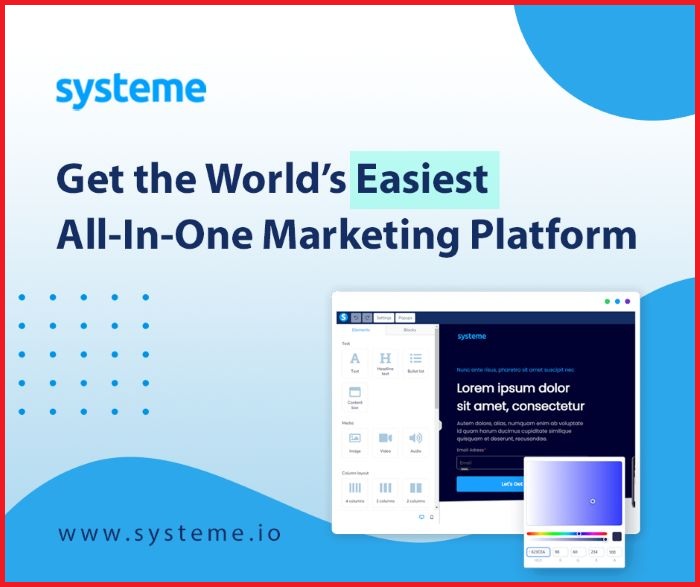Outsourcing search engine optimization can be a game-changer for your business. With so much competition online, you need to boost your website’s ranking on search engines. By outsourcing, you can focus on other aspects of your business while experts handle the complex elements of SEO.

There are various ways to approach this, such as hiring a dedicated SEO agency or contracting freelance SEO professionals. Each option offers unique benefits. Seasoned professionals ensure your site stays updated with the latest algorithms and trends, maximizing your online visibility. You save time and resources, while still achieving your growth goals.
Whether it’s technical SEO, on-page optimization, or link building, outsourcing allows a specialized team to handle these tasks efficiently. By leveraging expert skills, you ensure a thorough and strategic approach to expanding your digital presence.
Key Takeaways
- Outsourcing SEO improves website rankings and visibility.
- SEO agencies and freelancers offer specialized expertise.
- A strategic approach with experts saves time and resources.
Understanding SEO Outsourcing
Outsourcing SEO involves hiring external experts or agencies to manage your website’s search engine optimization efforts. This strategy can enhance your digital presence by leveraging specialized skills and resources.
Benefits of Outsourcing SEO
Outsourcing SEO services provides access to specialized knowledge that can greatly enhance your website’s performance. Experts can optimize your website with the latest techniques and tools, ensuring better search engine visibility. This includes managing everything from keyword strategies to technical improvements.
Scalability is another key benefit. With an outsourced team, you can adjust the level of service based on your business needs. This means adding or reducing services without hiring or laying off in-house staff. This flexibility is often cost-effective and efficient.
Outsourcing also lets you and your team focus on core business activities. By leaving the SEO work to professionals, you can dedicate more resources and time to other important areas of your business.
How to Choose the Right SEO Agency
When selecting an agency, first define your goals clearly. Understand what you want to achieve with SEO outsourcing. Do you need more traffic, better rankings, or improved user experience? A clear objective will guide your decision.
Research potential agencies thoroughly. Look for those with proven experience in your industry. Check their past successes and client feedback. An agency with relevant expertise can provide better insights and strategies for your business.
Evaluate the tools and techniques they use. Ensure they follow best practices and stay updated with search engine algorithm changes. Transparency in their process is crucial. Regular reports and open communication should be part of their service.
Additionally, consider how they measure success. The right agency will offer clear metrics and performance indicators. This helps you assess the effectiveness of your SEO efforts and make informed decisions.
Developing an SEO Strategy with an Outsourced Team
When working with an outsourced team, you can develop a strong SEO strategy by aligning SEO goals with business objectives. Keyword research is crucial to finding target keywords that enhance your visibility.
Aligning SEO Goals with Business Objectives
To align your SEO goals with business objectives, much attention should be paid to clear communication. Define what you aim to achieve through SEO, such as increased website traffic or improved search rankings. These goals should directly support your business ambitions like boosting sales or enhancing brand recognition.
Clearly outline your objectives so the outsourced team understands what to pursue. Collaboration is key; your team should regularly update you with performance metrics and insights to ensure alignment. This cooperation helps refine strategies and adjust tactics in line with real-time business needs. Using tools or dashboards can offer a visual understanding of progress, leading to more precise adjustments.
The Role of Keyword Research
Keyword research is essential when developing your SEO strategy with an outsourced team. It begins with identifying target keywords that your potential customers are searching for. Look for keywords that not only match your business venture but also show a strong search volume.
Your outsourced team should use keyword research tools to gather data on search trends and competitor keywords. This will help build a list of potential terms that can enhance your visibility. Ensure this list includes both short and long-tail keywords that relate to your products or services.
Updating and refining your keyword list is critical as market trends and consumer behaviors change. Regular evaluation allows you to stay competitive and relevant in search engine results.
Technical SEO and On-Page Optimization
In the realm of search engine optimization, having a strong foundation of Technical SEO and On-Page Optimization is essential. These strategies ensure that your website performs well and offers a seamless user experience.
Conducting Technical SEO Audits
Conducting Technical SEO audits can help you identify issues that might be hindering your site’s performance. This process involves checking for broken links, duplicate content, and crawl errors. These audits focus on website speed, which is crucial for preventing user drop-off.
Structured data, an important part of Technical SEO, aids in better indexing by search engines. It enhances the visibility of your site in search results. By regularly performing audits, you ensure your site remains optimized, keeping up with evolving algorithms and technology.
Improving User Experience
User Experience (UX) is a key component of both Technical and On-Page SEO. Fast page load times contribute greatly to positive UX, as slow pages can lead to high bounce rates. It’s important to have a responsive design that adapts to different devices, ensuring accessibility and ease of use.
The arrangement of content and intuitive navigation are crucial. When your site layout is logically structured, users can find information more easily. These elements work together, improving satisfaction and potentially boosting conversions. Positive UX signals to search engines can lead to better rankings.
Enhancing Content Optimization
Content Optimization focuses on strategic use of keywords, meta descriptions, and headers to make your pages more accessible to search engines. A well-structured content strategy involves using relevant keywords naturally throughout your text. Doing so enhances both readability and SEO rankings.
Meta descriptions should be concise and convey the essence of your page. These descriptions can influence click-through rates from search results. Headers help break down content, making it more digestible, and they play a role in search engine algorithms. Use these tools wisely to enhance your site’s on-page aspects.
Off-Page SEO and Link Building
Off-page SEO involves actions taken outside your website to impact your rankings within search engine results pages (SERPs). Link building, an important aspect of off-page SEO, involves getting other websites to link back to yours, increasing your domain authority. Internal linking, though part of on-page SEO, still plays a vital role in guiding visitors through your site.
Strategies for Effective Link Building
Link building is crucial for enhancing your site’s authority and visibility. You can start with guest posting on reputable sites. This helps you gain backlinks while showcasing your expertise. Participating in forums and commenting on blogs relevant to your niche are also effective. These methods allow you to build relationships and earn links naturally.
It’s essential to focus on quality over quantity. Links from high-authority sites improve your site’s credibility more than numerous links from low-quality sources. You can use tools like Ahrefs or SEMrush to identify potential link-building opportunities.
Internal Linking and its Importance
Internal linking involves linking different pages within your website, crucial for SEO campaigns. It helps search engines understand the structure and hierarchy of your site. This, in turn, improves indexing and helps guide users to more valuable content, keeping them engaged longer.
When you create internal links wisely, you distribute page authority across your site. Use descriptive anchor text for each link to clarify what each page is about. This aids in providing a seamless user experience by making your site more navigable. Use tools like Google Analytics to see which internal links get the most clicks, allowing you to optimize your strategy.
Content Creation and Marketing
When outsourcing SEO, content creation and marketing play a crucial role. Focus on building a strategy that aligns with your business goals and helps improve your search engine rankings.
Developing a Content Strategy
Start by identifying your target audience and understanding their needs. This involves researching the topics they are interested in and the problems they face. A well-developed content strategy should outline the type of content you plan to create, such as blog posts, videos, or infographics, along with how often you will publish.
Use keyword research to discover terms that potential customers are likely to search for. This will guide you in creating content that is relevant and likely to attract organic traffic. Consider partnering with specialized agencies that offer tailored strategies to achieve your goals.
Evaluate the performance of your content regularly. Use tools like Google Analytics to track visitor engagement and identify areas for improvement. This will help you adjust your strategy to better meet the needs of your audience.
Creating Content that Drives Organic Traffic
High-quality content is key to driving organic traffic. Focus on producing engaging and informative pieces that offer value to readers. This means clearly answering questions, providing solutions, or offering unique insights.
Ensure your content is optimized for search engines. This includes using keywords naturally, having clear headings, and incorporating meta descriptions. Also, consider multimedia elements like images or videos to enhance engagement.
Link building is another important aspect. Strategically placing internal and external links in your content can improve SEO. You can learn more about this by exploring resources such as Outsource SEO: How To Find the Right SEO Agency.
Regularly update your content to keep it relevant and accurate. This shows search engines and users that your site is active and reliable.
Leveraging Local SEO
Local SEO helps improve your business’s online visibility within your community. It focuses on enhancing search rankings for location-specific searches, making it essential for businesses with physical locations or services in specific areas. Implementing local SEO strategies can make a significant difference in attracting local customers.
Optimizing for Local Search Rankings
Improving local search rankings involves several targeted strategies. First, ensure your Google Business Profile is complete and up-to-date. This profile should include your business name, address, phone number, and operating hours. It’s also important to use local keywords in your content and meta descriptions, which help search engines identify your relevance to local queries.
Consistency in online directory listings is crucial. All information should match across platforms to build search engine trust. Tools like Semrush’s Listing Management can assist with this by keeping these listings consistent.
Encourage customer reviews, as they can boost your local credibility and influence rankings. Positive reviews lead to higher visibility in local search results. Engaging with these reviews also shows responsiveness and builds trust with potential customers.
Monitoring SEO Performance
When monitoring SEO performance, it is essential to use the right tools and techniques. Utilizing SEO tools and analytics can provide insights into organic search traffic and identify areas for improvement. SEO reporting, including case studies, helps in sharing results and refining strategies.
Utilizing SEO Tools and Analytics
To effectively track and enhance your SEO efforts, use powerful SEO tools like Semrush. These tools can analyze website traffic, identify keywords, and monitor backlinks. By assessing organic search, you can understand how users find your site and which keywords bring the most traffic.
Analytics platforms are vital for tracking visitor behavior and engagement. For example, Google Analytics helps you measure bounce rates, session durations, and more. These insights enable you to make informed decisions and enhance your website’s SEO performance.
Regular analysis is crucial. By frequently checking your site’s metrics, you can adjust your SEO strategies to align with changing algorithms and user behavior. This proactive approach ensures that your SEO efforts yield consistent and measurable results.
SEO Reporting and Case Studies
Comprehensive SEO reporting is vital to track your progress and communicate results effectively. Detailed reports should include metrics such as keyword rankings, traffic patterns, and conversion rates. Highlighting these metrics helps to convey the value of your SEO endeavors to stakeholders.
Case studies provide real-world examples of SEO success and challenges. They illustrate how different strategies impact performance, offering proof of concept. By studying these examples, you can adapt successful techniques to your own campaigns.
Incorporating case studies into your reports showcases SEO expertise and builds trust with clients or colleagues. It also guides strategic decisions by offering insights into what has worked well and what needs improvement. Consider developing your own case studies as you achieve success.
Scaling Your SEO Efforts
Growth in SEO requires adjusting your strategy as your business evolves. Enhancing your team can be vital to managing increased demands and ensuring that your site maintains strong performance. Outsourcing SEO services offers flexibility and scalability, helping you meet these demands efficiently.
When to Expand Your SEO Team
Knowing the right time to scale your SEO team is crucial. You’ll often need more expertise or resources when expanding your product lines or entering new markets. Increased website traffic and demand for more content also signal the need to scale.
Consider outsourcing SEO services to tackle these challenges. This approach allows you to tap into a pool of experts who can manage different SEO aspects without the long-term commitments of hiring full-time staff. During high-demand periods, outsourcing provides the scalability needed to optimize strategies effectively. It also helps in adapting to market changes while keeping costs manageable.
Outsourcing helps enhance your digital presence without overloading your in-house team. It’s a flexible solution ideal for businesses experiencing growth, offering a way to manage SEO tasks, implement new strategies, and maintain a competitive edge.
Collaborating with Freelance SEO Experts
Collaborating with freelance SEO professionals offers flexibility and expertise tailored to your specific needs. This approach helps in managing costs while tapping into skilled professionals. It also provides a focused strategy for your business goals.
Hiring Freelance SEO Professionals
When hiring a freelance SEO expert, start by clearly defining your goals. Whether you need to boost search rankings or improve technical elements on your site, knowing your needs helps in finding the right match.
You can search freelance platforms or SEO communities where experienced SEO consultants showcase their work. Look for freelancers with a proven track record and positive client feedback to ensure reliability.
Discuss their strategy and process in detail. Ask about the tools they use and their approach to optimization. Make sure they communicate well and keep you updated regularly on progress.
Be clear about payment terms and project timelines. Establish these upfront to avoid misunderstandings and ensure smooth collaboration. You can find freelancers who fit your budget while delivering quality work tailored to your needs.
Working with an SEO freelancer allows for flexibility. These professionals often adapt quickly to new updates in search engine algorithms, offering timely solutions without the overhead costs of an agency.
Evaluating the Impact of SEO on Your Business
Evaluating the impact of SEO on your business is vital to understand its effectiveness. Using the right tools and strategies helps attract more customers and enhances your online presence.
Measuring the ROI of SEO Efforts
To measure the ROI of your SEO efforts, you need to track key performance indicators (KPIs). These include increased website traffic, higher search engine rankings, and conversion rates. Each of these metrics provides insights into how well your SEO strategies are working.
Using analytics tools, like Google Analytics, allows you to monitor these metrics. For example, track organic search traffic to see how many visitors find your site through search engines.
Consider costs involved in hiring a digital marketing agency or an in-house team. Calculate the difference between initial investments and the financial gains resulting from increased traffic and conversions. Keeping these calculations updated helps assess the long-term benefits of SEO for your business.
Frequently Asked Questions
Outsourcing SEO can be a smart choice. It involves considerations like evaluation, budgeting, qualifications, cost efficiency, communication, and risk management.
How do you effectively evaluate an SEO outsourcing company’s performance?
To evaluate an SEO company’s performance, look at key metrics such as search engine rankings, organic traffic growth, and conversion rates. Regular reports and data analysis provide insights into whether their strategies are delivering results.
What factors should be considered when setting a budget for outsourcing SEO?
When budgeting, consider the complexity of your SEO needs and the size of your business. Different services, like local versus global SEO, have varying costs. It’s important to balance the quality of work with your financial capabilities.
What qualifications should be sought in an SEO specialist when looking to outsource?
Look for SEO specialists with extensive experience and a track record of successful campaigns. Certifications in SEO tools and platforms can also be beneficial. Recommendations and case studies help ensure they have the necessary skills.
How does outsourcing SEO compare to managing it in-house in terms of cost efficiency?
Outsourcing SEO can often be more cost-efficient due to the expertise and resources of specialized agencies. In-house teams may require more time and money for training and tools. However, in-house control may allow more direct oversight.
How can communication be effectively maintained with an outsourced SEO team?
To maintain effective communication, establish regular check-ins and updates through video calls, emails, or project management tools. Clear goals and open lines of communication help ensure alignment and address issues promptly.
What are the potential risks involved with outsourcing SEO and how can they be mitigated?
Risks include poor quality work and not meeting goals. You can mitigate these by choosing reputable agencies, setting clear contracts, and monitoring progress regularly. Feedback and adjustments along the process help manage potential pitfalls.





